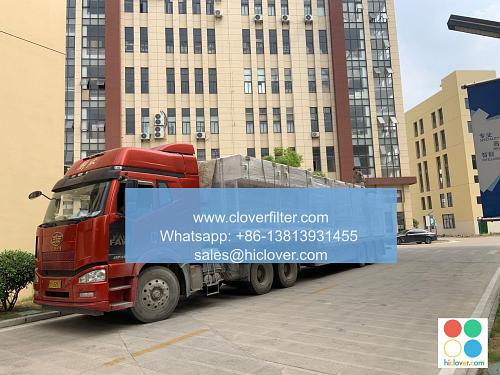Automatic Roll Air Filters in Montreal’s Semiconductor Industry: A Review of Current Trends and Technologies

Montreal’s semiconductor industry has experienced significant growth in recent years, driven by the increasing demand for advanced technologies such as artificial intelligence, 5G networks, and the Internet of Things (IoT). As a result, the industry has had to adapt to new challenges, including the need for more efficient and effective air filtration systems. One technology that has gained popularity in this context is automatic roll air filters. In this article, we will review the current trends and technologies in automatic roll air filters in Montreal’s semiconductor industry.
The semiconductor industry is a highly sensitive environment that requires extremely high levels of air purity to prevent contamination and ensure the quality of the manufactured products. Traditional air filtration systems have been used in the past, but they have several limitations, including high maintenance costs, energy consumption, and limited filter lifespan. Automatic roll air filters have emerged as a solution to these challenges, offering several benefits, including improved air quality, reduced energy consumption, and lower maintenance costs.
Automatic roll air filters are designed to automatically replace the filter media as it becomes dirty, eliminating the need for manual replacement and reducing the risk of human error. This technology uses a roll of filter media that is fed into the system, which is then cut to size and installed in the filter frame. As the filter media becomes dirty, it is automatically replaced with a new section of filter media, ensuring continuous air filtration and minimizing downtime.
The current trends in automatic roll air filters in Montreal’s semiconductor industry include the use of advanced materials and technologies, such as nanofibers, membranes, and internet of things (IoT) enabled sensors. These technologies enable real-time monitoring of air quality, filter performance, and system maintenance, allowing for predictive maintenance and optimized system performance. Additionally, the use of energy-efficient motors and sustainable materials is becoming increasingly popular, as companies seek to reduce their environmental footprint and minimize energy consumption.
Several companies in Montreal’s semiconductor industry have already adopted automatic roll air filters, including leading manufacturers such as IBM, Intel, and Micron Technology. These companies have reported significant improvements in air quality, reduced energy consumption, and lower maintenance costs. For example, IBM has reported a 30% reduction in energy consumption and a 25% reduction in maintenance costs since adopting automatic roll air filters in their manufacturing facilities.
Despite the benefits of automatic roll air filters, there are still several challenges that need to be addressed, including the high upfront costs, limited standardization, and potential reliability issues. However, as the technology continues to evolve and improve, these challenges are expected to be overcome, and the adoption of automatic roll air filters is expected to become more widespread in Montreal’s semiconductor industry.
In conclusion, automatic roll air filters are an innovative technology that has the potential to revolutionize the air filtration systems in Montreal’s semiconductor industry. With their ability to improve air quality, reduce energy consumption, and lower maintenance costs, they are an attractive solution for companies seeking to optimize their manufacturing processes and minimize their environmental footprint. As the industry continues to evolve and grow, it is likely that automatic roll air filters will play an increasingly important role in ensuring the quality and reliability of semiconductor products.
Conclusion
In summary, automatic roll air filters are a game-changer for Montreal’s semiconductor industry, offering improved air quality, reduced energy consumption, and lower maintenance costs. As the technology continues to improve and evolve, it is expected to become more widespread, and its benefits will be felt throughout the industry. Companies that adopt this technology will be well-positioned to take advantage of the growing demand for advanced semiconductor products and to maintain their competitive edge in the global market.
Frequently Asked Questions (FAQs)
Here are some frequently asked questions about automatic roll air filters in Montreal’s semiconductor industry:
- Q: What are automatic roll air filters, and how do they work?
- A: Automatic roll air filters are a type of air filtration system that uses a roll of filter media that is automatically replaced as it becomes dirty, eliminating the need for manual replacement and reducing the risk of human error.
- Q: What are the benefits of using automatic roll air filters in the semiconductor industry?
- A: The benefits of using automatic roll air filters in the semiconductor industry include improved air quality, reduced energy consumption, and lower maintenance costs.
- Q: Are automatic roll air filters widely adopted in Montreal’s semiconductor industry?
- A: While automatic roll air filters are not yet widely adopted in Montreal’s semiconductor industry, several leading companies have already adopted this technology, and it is expected to become more widespread in the coming years.
- Q: What are the challenges associated with adopting automatic roll air filters?
- A: The challenges associated with adopting automatic roll air filters include high upfront costs, limited standardization, and potential reliability issues.

